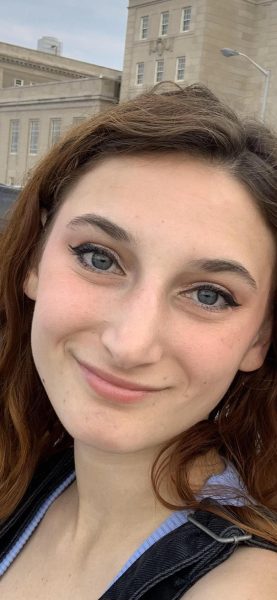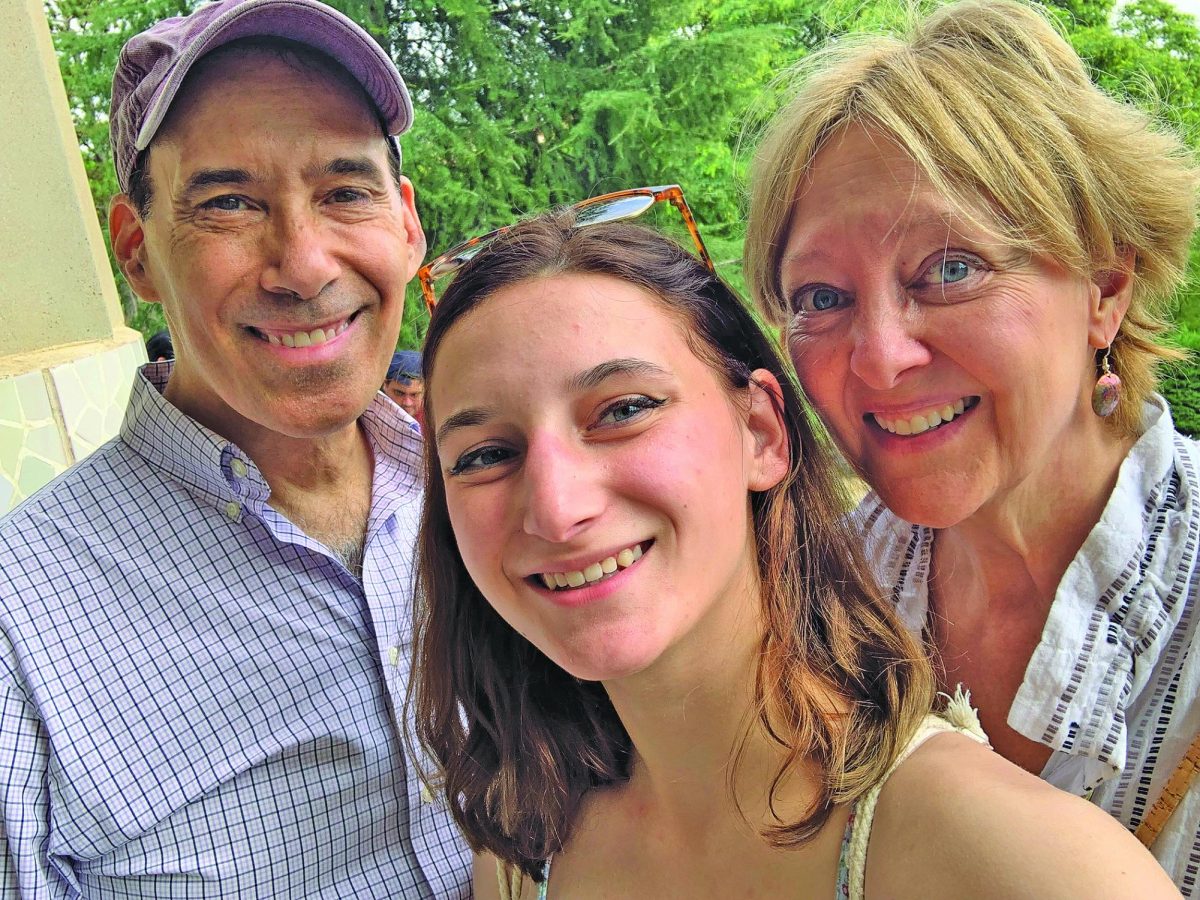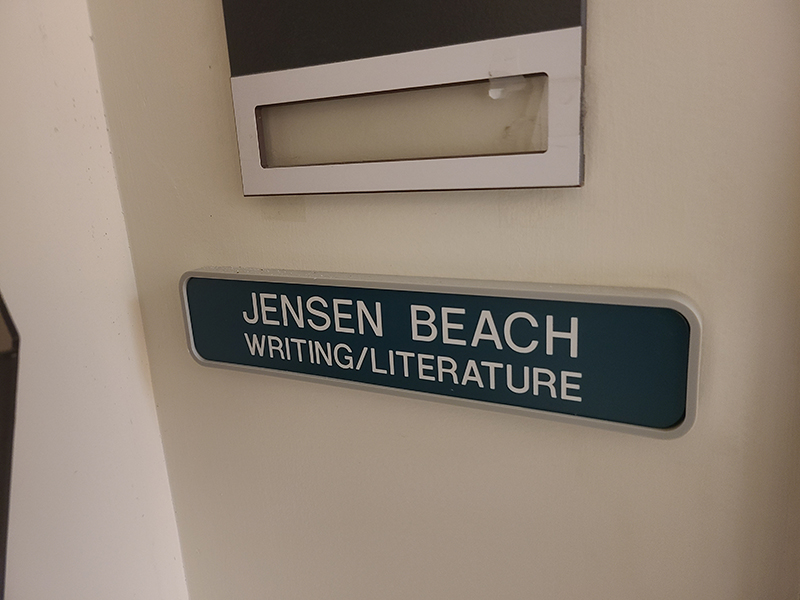Let’s talk about adoption. No, not pet adoption. Child adoption. It’s not talked about enough. It can be a difficult topic to discuss, and people have different opinions about it, much like everything else in the world.
According to the U.S. Department of State, the number of children adopted has drastically dropped — there were roughly 1,517 adoptions in 2022. Meanwhile, in 1999, there were roughly 15,715 adoptions. The highest number of adoptions was in 2004 at 22,987. Then State Department gives no explanation of this drastic decline.
According to Adoption Nation, 25% of adopted children in America have parents who are of a different race, culture or ethnicity.
I would not be writing this article if I were not adopted. Here’s a little bit about me: I was born on December 13, 2001, and was adopted two days later by my incredible parents. There were roughly 19,646 adoptions in 2001. I’ve known for longer than I can remember that I was adopted. That didn’t make me any less insecure about the fact, though.
People often asked ignorant questions, usually my young classmates in elementary school. I don’t hold this against them. We were kids, and kids are curious about things they don’t understand. There is one question that has stuck with me: a friend of mine in kindergarten asked what my parents were if they weren’t my parents, and she asked if that made them my step-parents. I know she was just trying to understand, but it still stuck with me all these years later.
The fact that I’m adopted caused issues between me and my parents, as well. When I would get angry with them, I would yell, “You can’t tell me what to do. You’re not my parent!” I always felt awful as soon as the words escaped my lips. Thank God, I’ve grown up and out of that silly little phase.
I have been asked if I have met my birth family or if I have any desire to. No, and not really. I think about them, sure, but I have a family — a great family that I couldn’t be more grateful for. I admittedly have been fighting with myself about how to go about this article because of how much I love and care for my parents. My need for their approval is a little problematic.
The worst thing I have been told has been, “I would never know you were adopted! You look just like your parents.” What? Where? The answer is usually my eyes. How does someone respond to that? “Thank You?” Heck no, that statement has the opposite effect than what you think it does. Statements like this one have caused so much insecurity and even self-hatred.
A big contributor (other than comments like the above) to my insecurity and self-hatred was the biological issues I faced. At six years old, I was diagnosed with ADHD. At eight, I was diagnosed with depression and anxiety. At 16, I learned I was dyslexic. I felt stupid. I felt angry. I began “acting out.” I would fight with my parents and get upset at the tiniest things. I felt like I wasn’t enough. I was filled with so much guilt. My parents had to deal with so much. Hell, I still feel guilty about how much they have done for me and how I acted, and sometimes still act (only when I’m really frustrated). It’s funny how much we change as we get older but can still regress when we are with people we trust.
My battle with self-hatred has ended, but the insecurity stays strong. I almost feel a little narcissistic writing this. I sit here writing about how hard my life is as an adoptee, of the trust issues and the abandonment issues, depression and anxiety, ADHD and Dyslexia.
I could go on for hours about my story, but I am a white person, adopted by white parents, who was born in the United States. So, I wrote to my dear friend Simon Giles to get his story as someone not only of an interracial adoption but of international adoption.
Simon was born Jan. 19, 2000, in a small city called Tiquisate, Guatemala.
“I was the 10th child in my family, and I really only spent 48 hours with my biological mother until I was given to a caretaker,” he wrote in reply. “I stayed with my caretaker for four months and after four months I was adopted by my current family.”
Simon said he knew he was adopted as a young child, but didn’t think much about it until he was five years old.
“That was until I entered the first grade,” he explained. “Everyone was white (shocker) but I realized I wasn’t like the rest of them and they made me know that. I was excluded from games at recess and even called weird. There weren’t many Latinos in my school and the few that were there were very light skin. This pretty much continued until high school as people just made me the outcast.”
That feeling of not belonging was, unfortunately, not limited to the school day.
“There were times I felt like an outsider within my own family,” Simon wrote. “Every year we go to New York state to see my aunt and dad’s side of the family for Thanksgiving. Even to this day I feel like I don’t belong, even though they love me.”
But Simon stated that his mom’s side of the family is a different story.
“My cousin Edgar, who is my favorite cousin, was also adopted from Guatemala and his sister was also adopted from there too,” Simon explained. “Whenever I went [there] I felt like I belonged and fit in. My grandfather treated me, not like an outsider, but as if I was one of his own children.”
The question of if he ever wanted to find his birth family is complicated for Simon, too.
He told me, “I once was asked by mom if I would like to meet my birth family and it’s a dodgy question for me. As I was the 10th child, I feel like I’m insignificant. There is also the fear of if they would even accept me as I grew up with a wealthy family and they are fighting day and night.”
Simon is like my older brother and I am like his annoying little sister and for that we will always be extremely grateful for each other, because we both understand what it is like to be adopted and the emotions that go with it.
Categories:
Insights from adoptee’s POV
Jill Pressman
•
March 26, 2024
More to Discover
About the Contributor

Jill Pressman, Staff Writer, Web Editor
Jill Pressman (they/them) is a creative writing major. They have been on the Basement Medicine staff for a year. They enjoy long walks on the beach and using Pinterest for storyboarding whatever creative writing projects they are working on.




